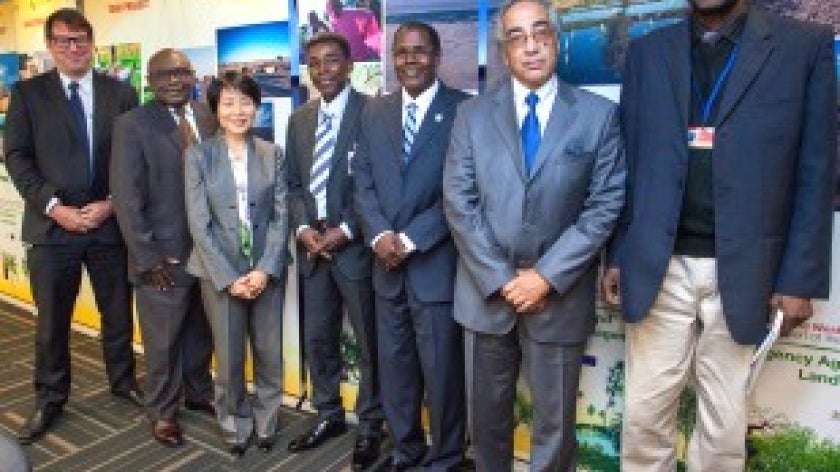
Washington DC, October 15, 2013 – Naoko Ishii, CEO and Chairperson of the Global Environment Facility, took part in a ceremony today marking the signing of grant agreements under the BRICKS project supporting the Great Green Wall Initiative in Sub-Saharan Africa.
The ceremony was chaired by Colin Bruce, World Bank Director for Strategy and Operations in the Africa Region, with Djimé Adoum, Executive Secretary of the Interstate Committee for Drought Control in the Sahel (CILSS), Khatim Kherraz, Executive Secretary of the Sahara and Sahel Observatory (OSS), and Aimé Nianogo, Director of the West and Central Africa Office of the International Union for Conservation of Nature (IUCN/PACO).
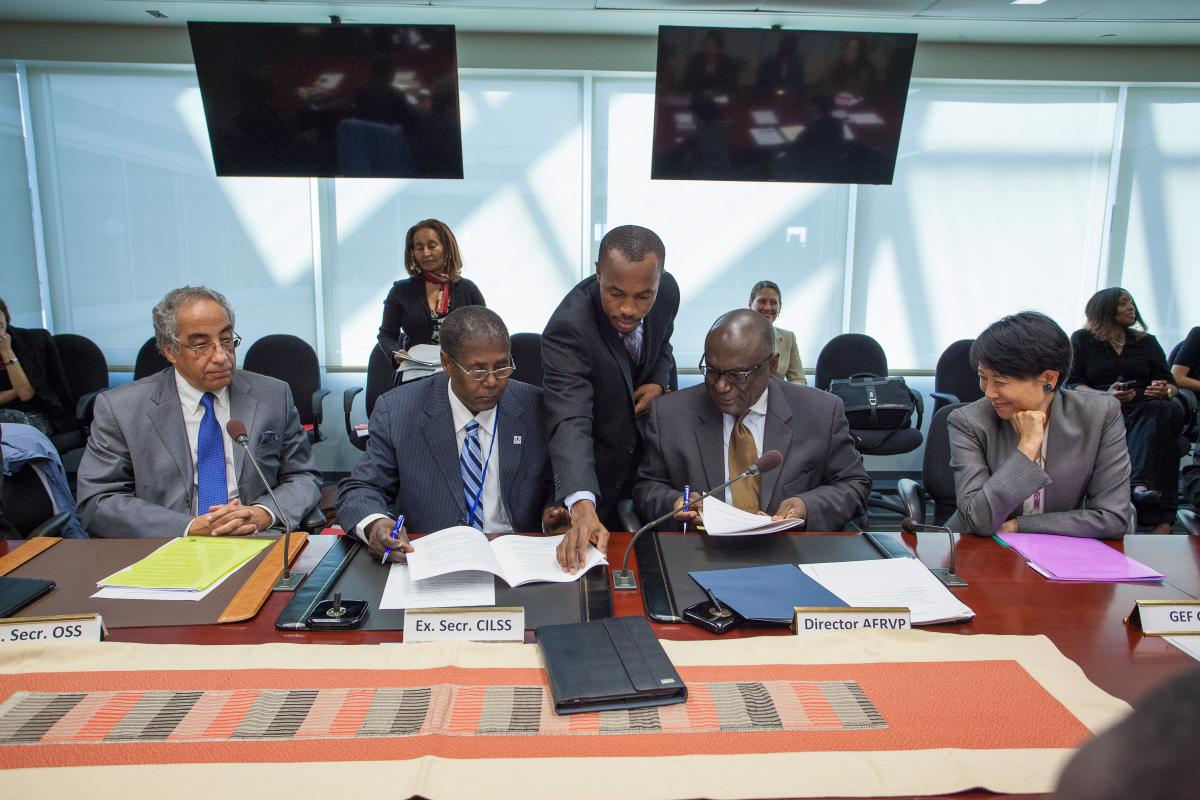
Signature of the grant agreements by Djimé Adoum, Executive Secretary of the Interstate Committee for Drought Control in the Sahel (CILSS) and Colin Bruce, World Bank Director for Strategy and Operations in the Africa Region. Khatim Kherraz, Executive Secretary of the Sahara and Sahel Observatory (OSS) and Naoko Ishii, GEF CEO and Chairperson are witnessing the moment.
The BRICKS project—Building Resilience through Innovation and Knowledge Services—with $4.6 million in GEF support, is the regional component of the Sahel and West Africa Program to Support the Great Green Wall Initiative, the GEF and World Bank contribution to the Great Green Wall Initiative (SAWAP/GGWI). It will provide knowledge and monitoring services to twelve countries from Senegal to Ethiopia and will help to disseminate the lessons and good practices.
“The GEF is delighted to be helping countries of the Sahel and West Africa region move forward with the Great Green Wall Initiative,” Ishii said. “This represents a key contribution from the GEF to the commitment to transformational change in the drylands. The BRICKS project will support a regional platform to ensure coherence in approaches toward sustainable land management across the region. And the participation of CILSS, OSS, and IUCN will strengthen the opportunity for involving civil society and grassroots organizations in the overall program.”
SAWAP/GGWI aims to expand sustainable land and water management in targeted landscapes and in climate-vulnerable areas in West African and Sahelian countries. The SAWAP is composed of twelve investment operations implemented by twelve countries using resources from the GEF, the Least Developed Countries Fund, and the Special Climate Change Fund in addition to World Bank investments in agriculture, local development, forests, energy, or disaster risk management.
The role of the GEF in this initiative is to catalyze efforts and emphasize the linkages between rural development and decentralization and global environmental benefits and adaptation to climate change. The GEF is bringing more that $100 million in grants to this program that will leverage cofinancing and parallel initiatives up to $2.8 billion.
“Sahelian countries face a complex set of development challenges. Flat economic growth, rising population, and rapid natural resource degradation are now increasingly affected by climate change,” said Dr. Adoum, CILSS Executive Secretary. “Through projects such as BRICKS we aim to build capacities of African institutions, strengthen country project implementation and secure robust development gains that not only help reduce poverty but also build the resilience and coping capacities of poor communities living in ecologically fragile, harsh environments.”
“The BRICKS project is a strategic effort designed to boost resilience in the Sahel and help countries and communities adapt to the challenges posed by a changing climate and rapidly degrading natural resource base,” said Jamal Saghir, World Bank Director for Sustainable Development in the Africa Region.
The BRICKS project will leverage knowledge across a substantial, highly visible portfolio of sustainable landscape investments. It will help to include global environmental public goods management as a fundamental strategy for securing economic growth, equity, and livelihoods opportunities in an era of increasing climate variability. It will disseminate and promote evidence-based policymaking and investments. And it will serve as an interface with other partners as the African Union Commission, FAO, and UNCCD to ensure complementarities and synergies.
Exchange of Signed agreements
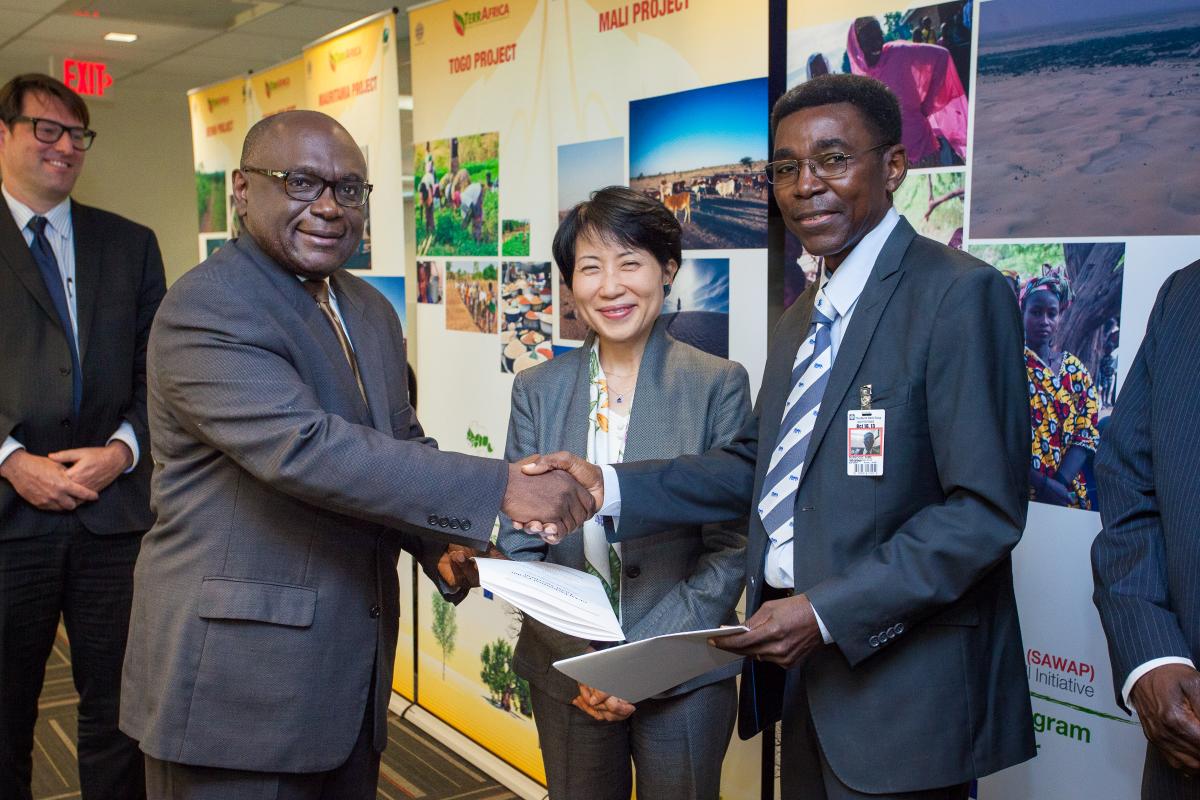
Exchange of the signed grant agreements between Colin Bruce (left) and Aime Nianogo (right), Director of the West and Central Africa Office of the International Union for Conservation of Nature (IUCN/PACO), with the blessing of Naoko Ishii.
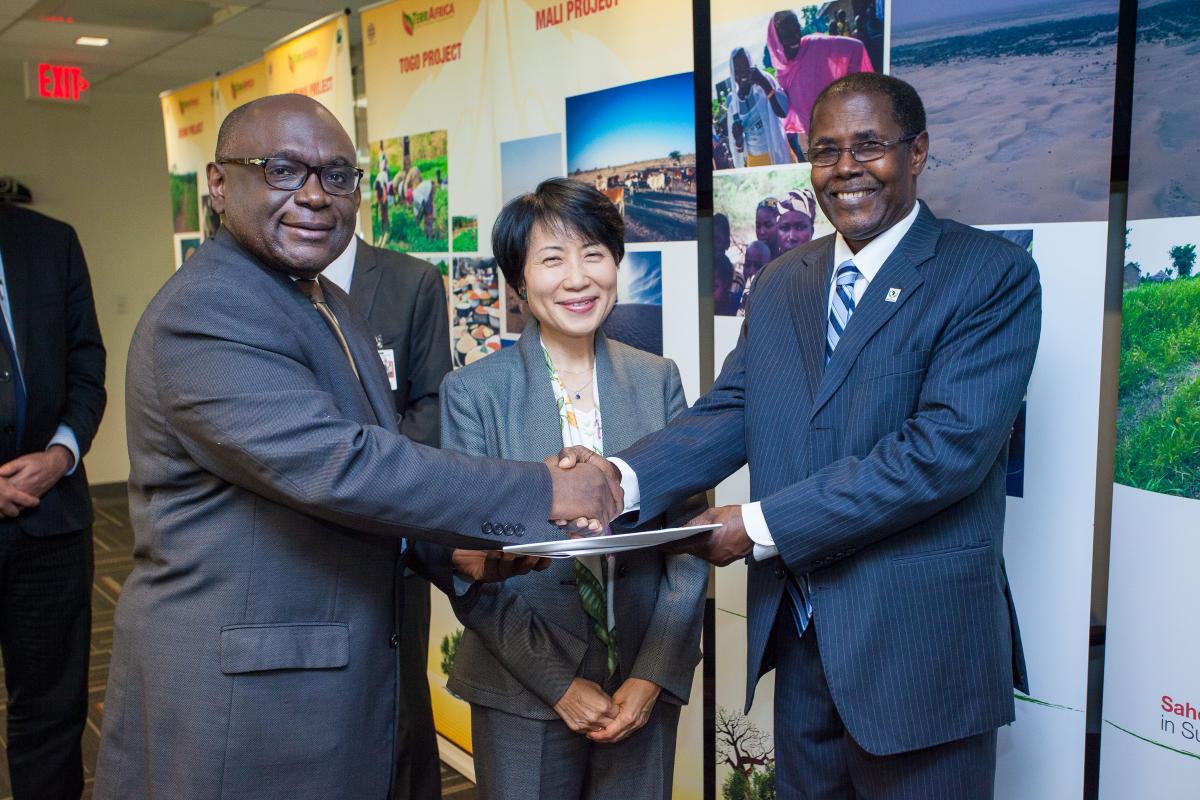
From left: Colin Bruce, Naoko Ishii and Djimé Adoum
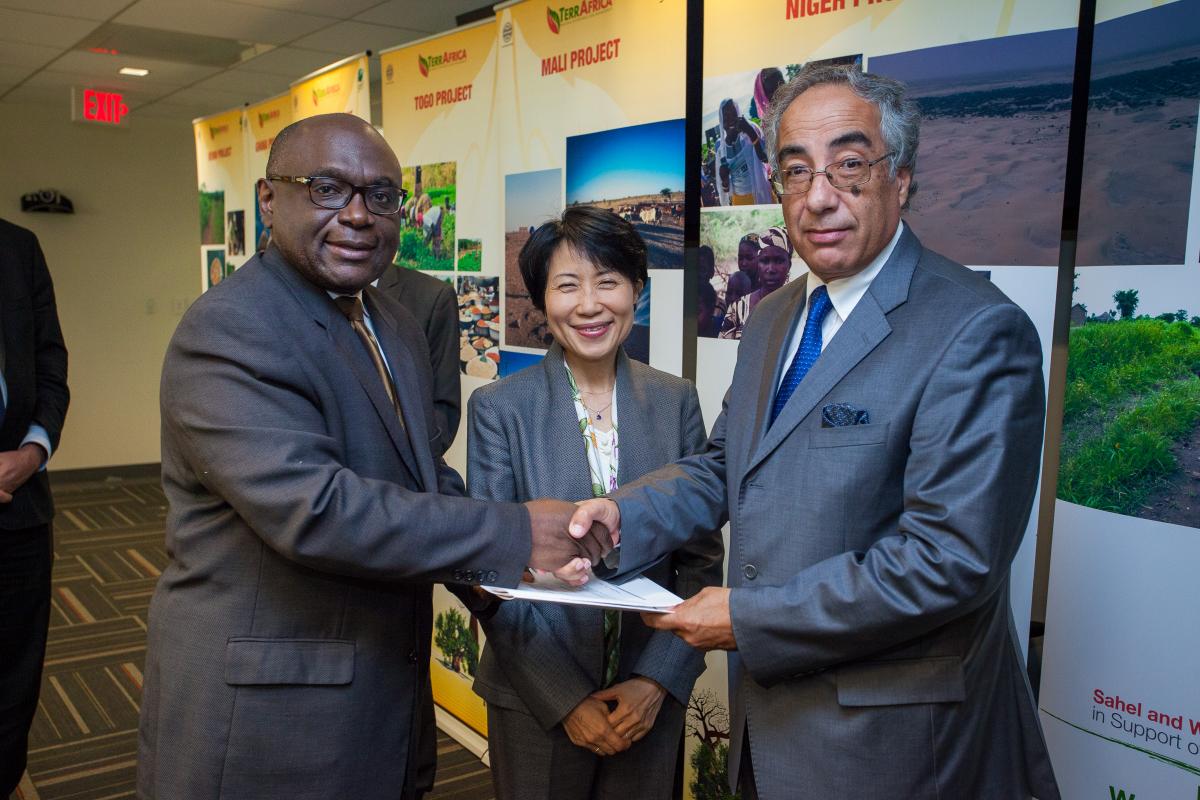
From left: Colin Bruce, Naoko Ishii and Khatim Kherraz